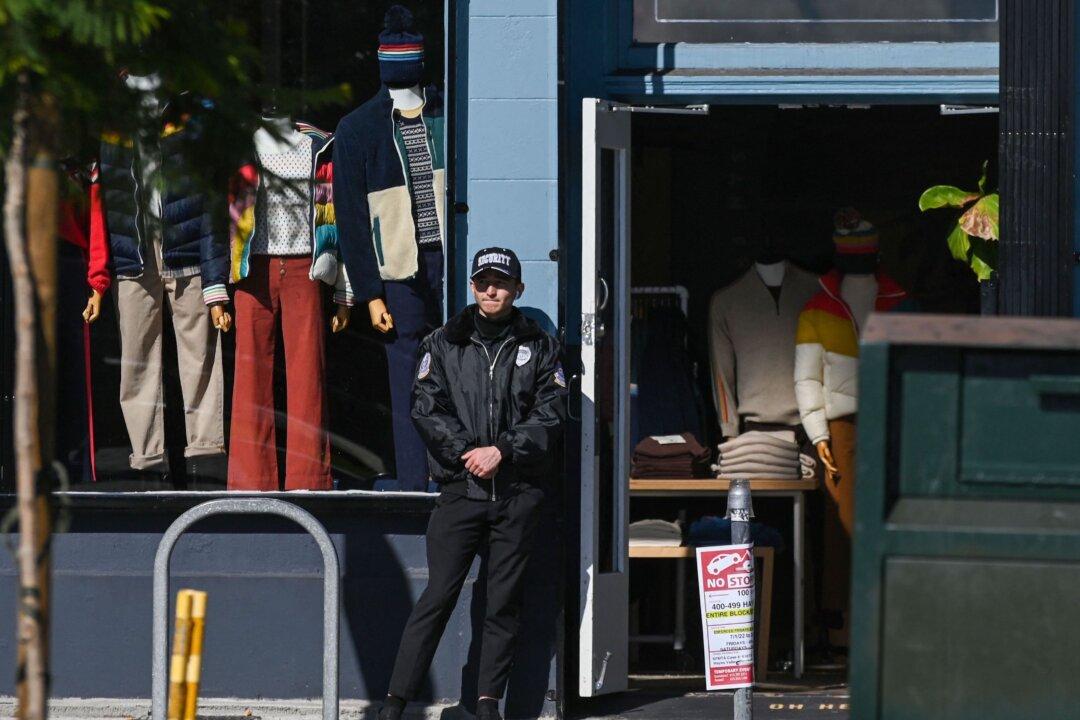With Northern California shoppers out in force ahead of the Christmas holiday, many changes are visible in the areas most frequented by holiday gift seekers, including extra security measures taken by many stores.
Alarmed by the number of retail theft crimes, along with videos circulating on social media showing such incidents, one family told The Epoch Times they’re taking every precaution this year to stay safe.





